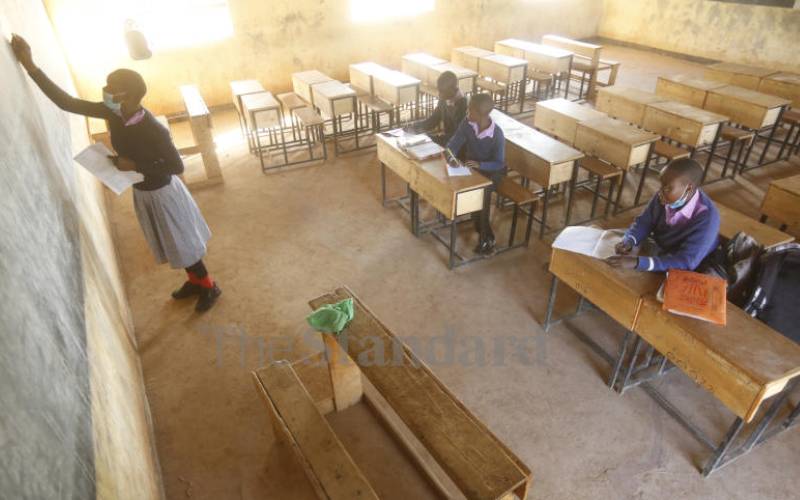×
The Standard e-Paper
Stay Informed, Even Offline

Pupils in a class at Ol Moran Primary School, September 2021. [Kipsang Joseph, Standard]
Many Kenyan parents place a high premium on their children’s education, which plays a key role in the cost of living.